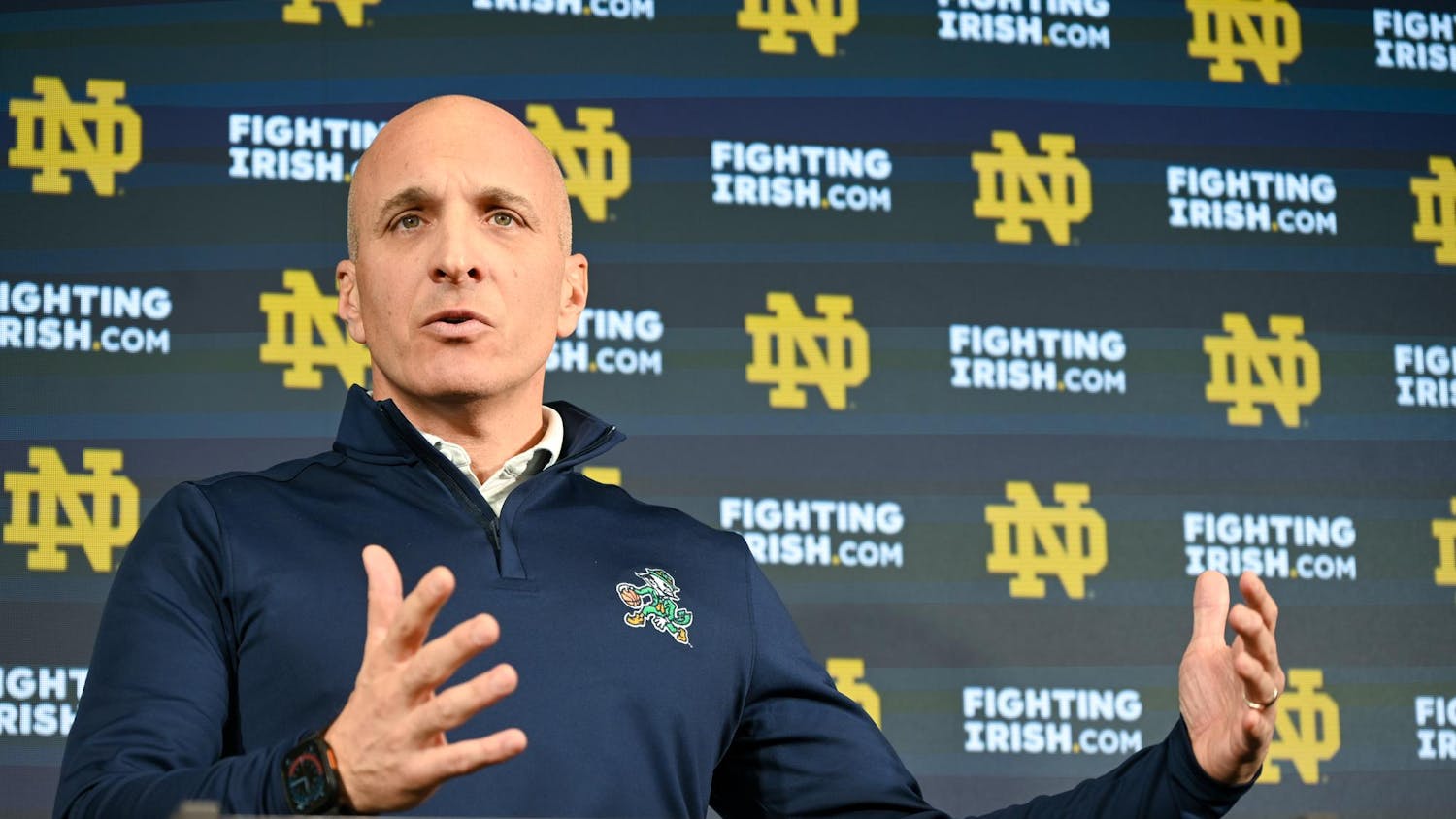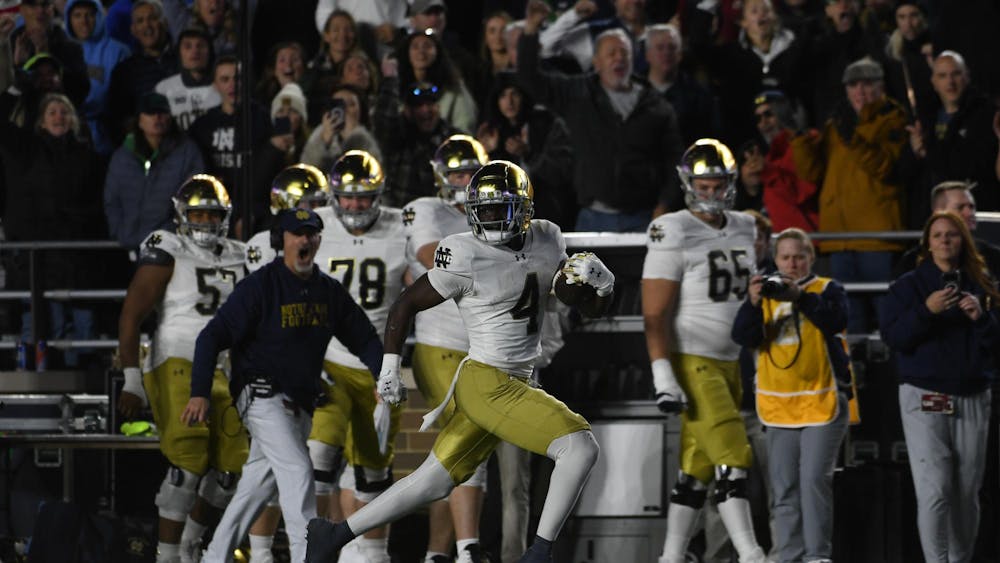We need to acknowledge that Marcus Freeman needs help with in-game decision making. With 9:49 left to go in the fourth quarter against Louisville, on fourth and 11, Freeman left the offense on the field. Unsure of what to do in this situation, Louisville called a timeout. But after the break, Freeman still brought the unit back out onto the field. Hartman ended up throwing an incomplete pass that was nearly intercepted. No receiver was in sight. With less than 10 minutes left to go in the game, the Irish needed two scores. It was right for Freeman to acknowledge that he couldn’t leave this game to his defense. However, abandoning the game plan with so much time left in the contest raises questions. In his postgame press conference, Freeman defended his decision, claiming that finding time for two additional possessions would be difficult.
Starting with the defense
On the defensive side, Louisville’s physicality overpowered the Irish. Missed tackles fueled both of Louisville’s second-half touchdowns. They each came on ordinary runs that turned into breakaway scores. Going into the matchup, the Irish averaged giving up 3.5 yards per opponent rush – significantly lower than the 4.6 yards per carry that Jawhar Jordan and the Cardinals picked up. Missed tackles are inexcusable.For much of the game, even into the fourth quarter, the Irish played static man coverage. Man coverage could not contain Louisville’s dynamic offense, filled with motions and options. Often, the Irish locked on to one player. When any pre-snap change came their way, such as a horizontal pre-snap sweep, the opposing receiver often got lost in traffic. Freeman and Al Golden can’t stop opposing offenses themselves, it comes down to their players making the right moves. But not moving to zone coverage needs a serious explanation behind it. If – even worse – the Irish weren’t prepared to play zone defense or didn’t focus on it during practice, the coaching staff didn’t watch enough film and wasn’t prepared to play a quality ACC team.
A slow, stagnant offense
On the offensive side, Notre Dame struggled to run the ball. Including Sam Hartman’s runs, the Irish gained just 44 yards on 28 carries, averaging 1.6 yards per carry. Yet Gerad Parker and his team continued to give the backs carries, especially on first down. Estime ran for 20 yards on 10 carries. Outside of his game-winning run against Duke, Estime has slowed down recently, following four monster games to start the season. Throughout the game, the Irish rotated their offensive line. In his postgame press conference, Freeman admitted that the team has struggled at the guard position. The coaching staff thought that rotating players was a way to be more dynamic. Unfortunately, continually changing and rotating guards meant repeatedly making the same mistakes.An uncertain, but different future
Freeman is a young coach and much of his current staff is young and inexperienced. However, for the second straight season, Notre Dame will not meet the high expectations set by fans at the season’s start. After this year, Notre Dame’s future is unclear. Next year’s team will be young, but the schedule should be lighter and a team could get into the playoffs with two – or possibly three – losses. Whatever Notre Dame looks like next year, one thing is certain: if they want to be an elite team, Freeman must make better in-game decisions and adjustments. I’m not sure where – or when – that starts, but some form of change is necessary to see better results.Sign up for our Observer Sports newsletter!Have an Irish sports question? Ask it for our Observer Sports mailbag!









